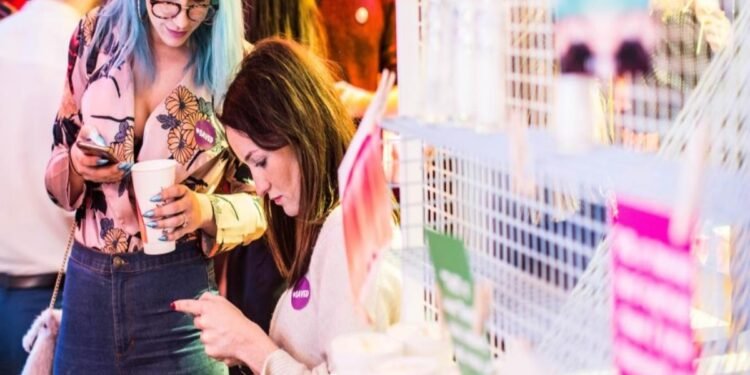Millennials have been dubbed the “generation of rebels”. This moniker is not just a descriptor, but rather a fact. They are entrepreneurs, they are constantly moving and shaking up the workforce, and they are not afraid to speak their mind.
As such, it should come as no surprise that they are not interested in spending money on products that do not suit their needs or look good on them. The beauty industry has taken notice of this shift in consumer behavior and is working hard to adjust accordingly.
Hidden Costs of Beauty
One of the biggest problems facing the beauty industry is that millennials are often unaware of the hidden costs of beauty. For example, many millennials are unaware that they are paying for products that they don’t even use.
For example, many millennials are using beauty products that were designed for older people. These products contain harsh chemicals that can damage the skin. They also spend a lot of money on beauty products that they don’t need, such as face masks and hair extensions.
For example, millennials are not interested in using contouring or highlighters to make their faces look more attractive. Instead, they prefer natural makeup looks that are more flattering. They also prefer natural hair styles that don’t require a lot of maintenance.
Another problem with the beauty industry is the way it treats its employees. Many young women feel like they have to work extremely long hours in order to get ahead in the industry. This often leads to burnout and a lack of motivation.
Fortunately, there are some organizations working to change the way the beauty industry works. For example, WeLoveMakeup is a non-profit organization that helps women start their own businesses in the beauty industry. They provide training and resources to help women succeed in this competitive field.
Generation Y’s Relationship to the Beauty Industry
Millennials are the most diverse and inclusive generation in history. They have a unique relationship with the beauty industry, which has been changing rapidly over the past few years.
In the past, the beauty industry was based on traditional values and ideas about beauty. This meant that products were designed to make people look “beautiful” in a traditional way.
However, millennials are different. They want to look good without relying on traditional beauty standards. This means that the beauty industry needs to change its approach to marketing and design if it wants to appeal to millennials.
One way that the industry is trying to change its approach is by creating more affordable and accessible products. For example, Urban Decay has launched a campaign called “Makeup Is For Everybody” which offers affordable makeup for people of all ages and skin colors.
Another way that the industry is trying to change its approach is by creating more innovative products. For example, Lancôme has developed a range of cosmetics that are designed to improve your skin’s health.
Overall, millennials have a different relationship with the beauty industry than previous generations did. This means that the industry needs to adjust its marketing and design strategies if it wants to keep them happy.
The Impact of Social Media on the Beauty Industry
One of the biggest problems facing the beauty industry is that millennials are not buying into it. In fact, they’re turning their backs on it altogether.
One of the reasons for this is social media. For millennials, social media is everything. They use it to find out about new products and services, to share their thoughts and experiences, and to network with other people who share their interests.
The beauty industry has been struggling to keep up with this shift. They’ve tried to adapt by creating more social media-friendly websites and apps, but that hasn’t had much of an impact. millennials are still using social media to discover new products and services.
As a result, the beauty industry is losing customers and revenue. It needs to do something drastic if it wants to survive.
Effects of Globalization on the Beauty Industry
One of the biggest problems facing the beauty industry is the effect of globalization on its operations.
Globalization has had a significant impact on the beauty industry in recent years. This is because many of the products used in the industry are made overseas. As a result, manufacturers can now make products at a lower cost and sell them in countries where there is a greater demand for them.
This has led to a decrease in the prices of many beauty products, which has affected the affordability of beauty products for millennials. In addition, many millennials are not interested in using traditional beauty products such as face creams and hair dye. They prefer natural and home-grown remedies that are often more affordable and environmentally friendly.
The lack of interest by millennials in using traditional beauty products is likely to have a negative effect on the industry over time. If millennials do not start purchasing cosmetics and other beauty products, companies will be forced to discontinue manufacturing these products or shift their focus to other markets.
Conclusion
Millennials make up a large portion of the population, and as such they are shaping the beauty industry in ways that many older generations might not be comfortable with. In this article, we discuss five ways that the beauty industry is failing millennials, and what you can do to help fix these problems. From campaign finance laws that disadvantage young entrepreneurs to an over-reliance on synthetic chemicals, it’s clear that there is work to be done if we want millennials to feel represented in the beauty world. If you’re interested in taking action on behalf of millennials in the beauty industry, please read on!










